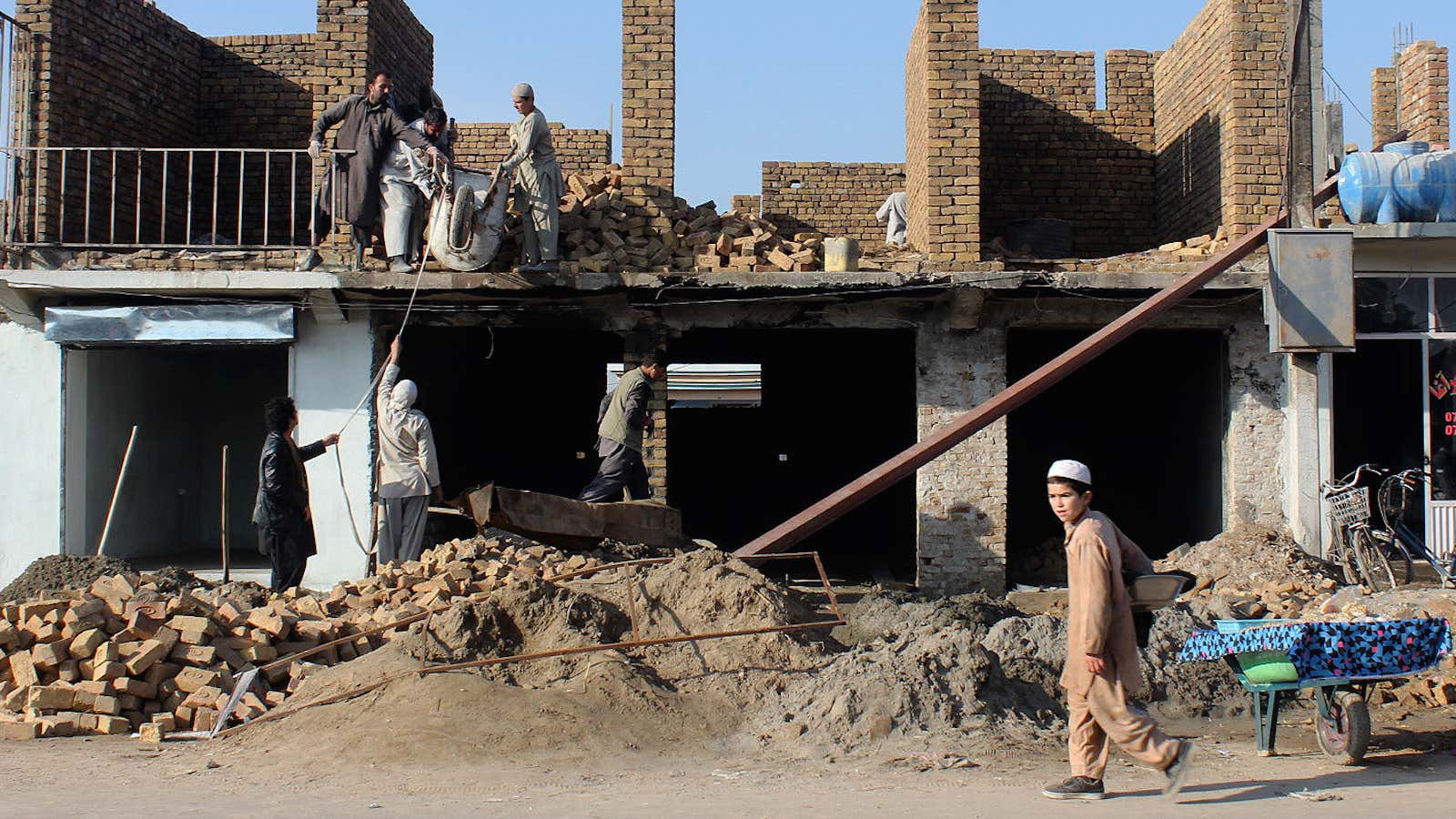The second episode of Serial’s second season opens with a timely update: Bowe Bergdahl, the American soldier held captive by the Taliban for five years, may face a court martial for desertion charges.
This season of the popular podcast focuses on Bergdahl’s semi-mysterious story, which was widely publicized after Bergdahl returned home and is still playing out as Serial‘s investigation unfolds. In other words, host Sarah Koenig and the Serial team are still, in a sense, reporting this story. We may think we know how the story ends—Bergdahl was returned in a prisoner exchange—but the charges unfolding against him outside of the podcast help add some uncertainty.
So far, Koenig has done a good job of introducing new characters and testimonies that you most likely haven’t heard from mainstream media: like this week, the Taliban! With the help of an interpreter, Koenig interviews a member of the group who helped shuttle Bergdahl from eastern Afghanistan to Pakistan, where the US military would have a much harder time getting to him. (Remember, for a moment, what year it is: 2009, or more than seven years into the US war in Afghanistan, which is important for other points that Koenig sets up in this episode.)
The Taliban, who Koenig got in touch with through journalist Sami Yousafzai, called Bergdahl a “golden chicken,” because he was an American, he was a soldier, and he was alive. At one point, Koenig asked one of men who handled Bergdahl, whom she calls Mujaheed Raman, but that’s not his real name, if keeping Bergdahl was worth losing 15 of his men in an unsuccessful American raid. Raman said Bergdahl was worth maybe 5,000 of his guys.
And on like this. We learn that it was relatively easy for the Taliban to capture Bergdahl (he reportedly just hopped on their motorcycles), that they knew the US military were looking for him and had intel they would take Bergdahl to Pakistan, and that first Raman and his guys hid Bergdahl somewhere else. We learn that, according to Raman, his men treated Bergdahl like a guest, and even tried to cheer him up at times—but for the most part, Raman tells Koenig, Bergdahl was like a Buddha: statuesque.
On the US side, we learn that Bergdahl had successfully set off a DUSTWUN, the code for Duty Status—Whereabouts Unknown. The extensive US military operation to find Bergdahl officially lasted 45 days and was, of course, unsuccessful. The US used Low Level Voice Intercept (LLVI) to find any information about Bergdahl’s location: If they intercepted radio chatter from Afghans about an American dressed in khaki or a soldier asking for someone who spoke English, they could roughly locate where he was (or potentially was).
But this put Bergdahl’s fellow soldiers through torturous conditions, and sometimes led them straight into booby traps. The US may have been in Afghanistan since 2001, but as a former military operations officer told Koenig, “there is no institutional knowledge” at this point about Afghan politics and networks. The Taliban had the home court advantage. Through Koenig’s reporting, we get a picture of the US military as a powerful, but bulky machine—one that can’t see the nimble, shifty networks moving below them that were keeping Bergdahl hidden.
Many of the soldiers that Koenig said they were angry at Bergdahl—one says that he’s still angry—and a few of his platoon members said that if they had found Bergdahl, they would have shot him. That brings up one of the questions that Koenig is trying to answer this season: Who, exactly, is ready to forgive Bergdahl? Part of the answer seems to be: not the US military—as evidenced by the fact he could face a court martial and potentially serve the rest of his life in prison.
